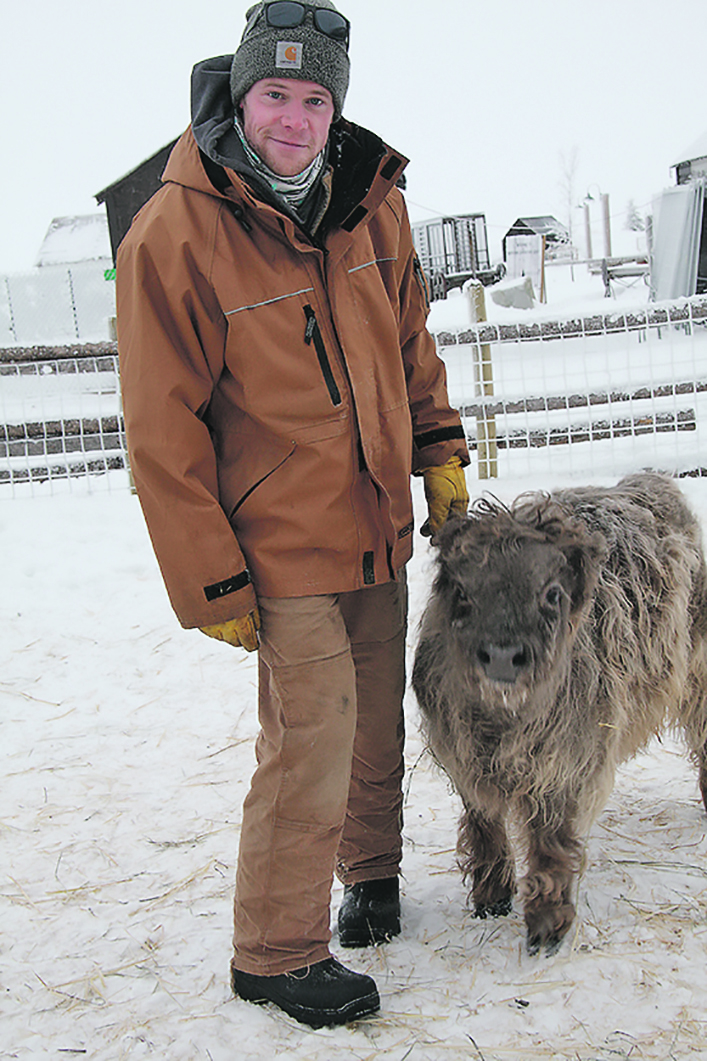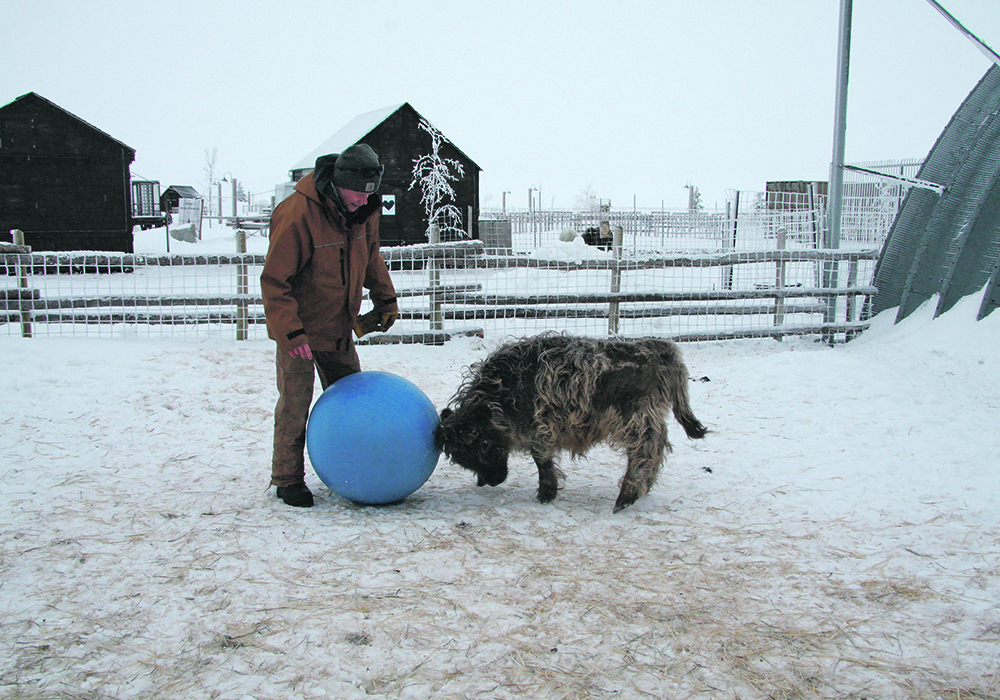Greenhouse operators think the bull calf they acquired last fall will be a nice fit with their focus on agricultural education
Five-month-old Theo is a bull, but he might just as well be a large puppy.
The miniature Highland resembles a shaggy dog and romps around his pen with a ball like one, stopping for scratches and to suck on fingers.
The bottle-fed baby, whose horns are just starting to grow, arrived at Cedar Creek Gardens from Washington last fall.
Taylor Crassweller is “dad” to Theo and said it’s time to start weaning.
To his knowledge, Theo is the only miniature Highland bull in Canada. There is no Canadian registry for the small breed.
Theo came from the Rocking L Ranch after Crassweller saw social media posts about their herd, called and then headed west to visit.
“I helped pull a calf while I was there and it was a wicked learning experience for me,” he said. “It just lit this fire.”
Cedar Creek Gardens is a family-operated business a couple of miles south of Regina that began as a greenhouse 10 years ago.
Adding a gift shop, corn maze, petting zoo, gem mine, 18-hole miniature golf course and other activities have turned it into a destination.
Crassweller said he’d like to see it become a place for agricultural awareness and education.
He was studying production horticulture while playing football in Minnesota after high school. Returning home to operate the greenhouse was the plan but his time at an agricultural university opened the city boy’s eyes to other agricultural possibilities. He had spent some time on farms as a child so was no stranger to agriculture.
“When we added the petting zoo it made me so aware of how unaware many city people are,” he said. “They have no idea what some of the animals are. It fostered this desire for me to show kids, and adults even, more.”
The petting zoo has miniature horses, Nigerian dwarf goats, rabbits and pigs.
His idea is to expand the cattle herd and potentially get into the meat market.
“I’m not a cattleman by any stretch,” Crassweller said. “I know nothing. But I have good support from neighbours and I’ve reached out to the Saskatchewan Cattlemen’s Association.”
He is well aware that right now a market for miniature Highlands would be as pets. He sees acreage owners who want pasture pets as potential buyers.
“I don’t think people buying them now want to eat them,” he said, observing the prices they are paying.
In the United States, the price is about $11,500 for a heifer while the bulls have sold from $20,000 to $50,000.
On his land base, he could maybe run 25 to 35 cows with two or three bulls but that could change if he got more land.

Miniature Highlands are bred through embryo transplants in recipient cows. Theo, for example, came out of a Holstein.
The success rate is 40 to 60 percent, Crassweller said, but he hopes that eventually with a larger herd natural breeding might be successful. He said with a three-year wait list to get breeding stock from Rocking L the whole process will take a while.
He has met with a veterinarian about collecting semen from Theo, but that too is in the future.
The cuteness factor might dictate whether or not miniature Highlands find a place in the meat market. They reach about 500 pounds but do produce about 10 percent more beef to the bone than larger breeds, he said, and offer excellent feed conversion.
For now, Theo will be a key part of a program Crassweller hopes to soft launch this summer: Farmer for a Day camps.
The idea is to have kids out to the site to learn more about animals and plants that they eat.
Theo has already garnered media attention across Canada and in the United States, France and Sweden thanks to videos on social media.
Crassweller said, in the end, it’s all been fun and a lot of learning.
“I’ll be happy just raising miniature Highlands,” he said.
“If I’m the one-hit wonder guy running around in videos in Carhartts with his bull, that’s OK with me.”
















